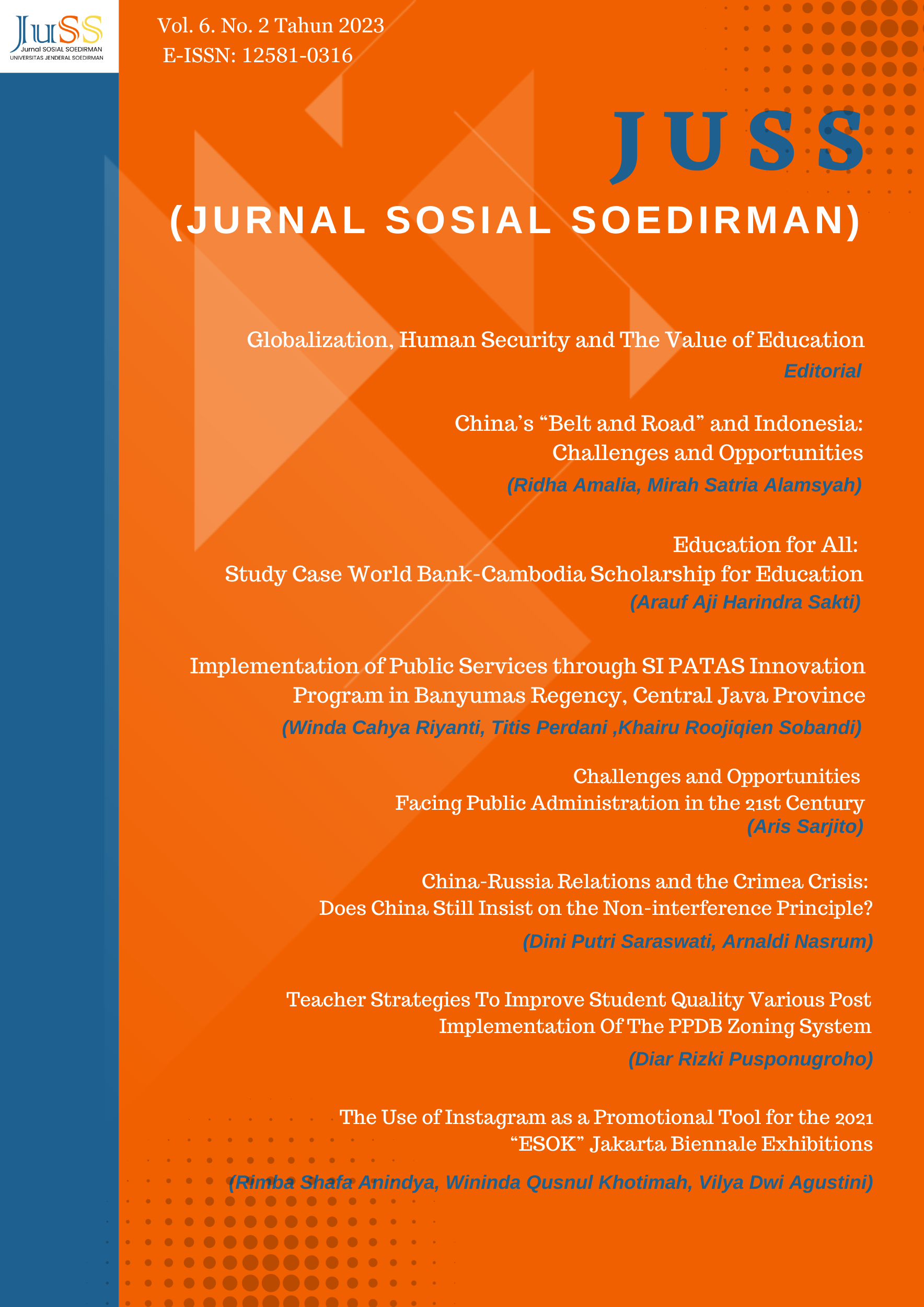China-Russia Relations and the Crimea Crisis: Does China Still Insist on the Non-interference Principle?
Abstract
The crisis in Crimea caused the world to condemn Russia's invasive actions. China, as Russia's strategic partner, is in a dilemmatic situation because on the other hand, China has authority at the UN Security Council to maintain world peace. At the same time, China is also implementing its non-interference principle to respond to this challenge. This article will discuss further about how China can balance its interests with Russia through its non-interference principle and the interests that China has towards Russia. The method used in this research is a qualitative method through document study. The theory used is David Welch's theory of foreign policy change. The findings of this study are China's interests towards Russia, namely energy, military cooperation, and influence in Central Asia so that China's pragmatism arises to support Russia.

















